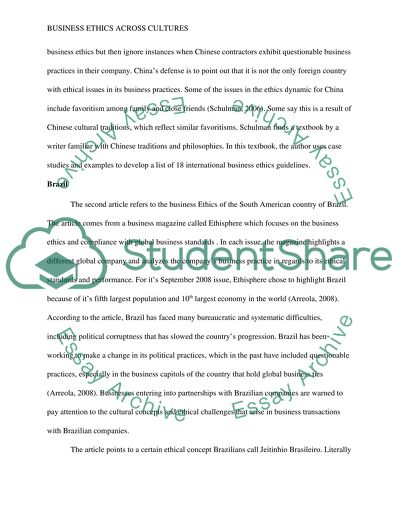Cite this document
(“Business Ethics Across Cultures: China and Brazil Essay”, n.d.)
Retrieved from https://studentshare.org/environmental-studies/1415120-xmgt
Retrieved from https://studentshare.org/environmental-studies/1415120-xmgt
(Business Ethics Across Cultures: China and Brazil Essay)
https://studentshare.org/environmental-studies/1415120-xmgt.
https://studentshare.org/environmental-studies/1415120-xmgt.
“Business Ethics Across Cultures: China and Brazil Essay”, n.d. https://studentshare.org/environmental-studies/1415120-xmgt.


